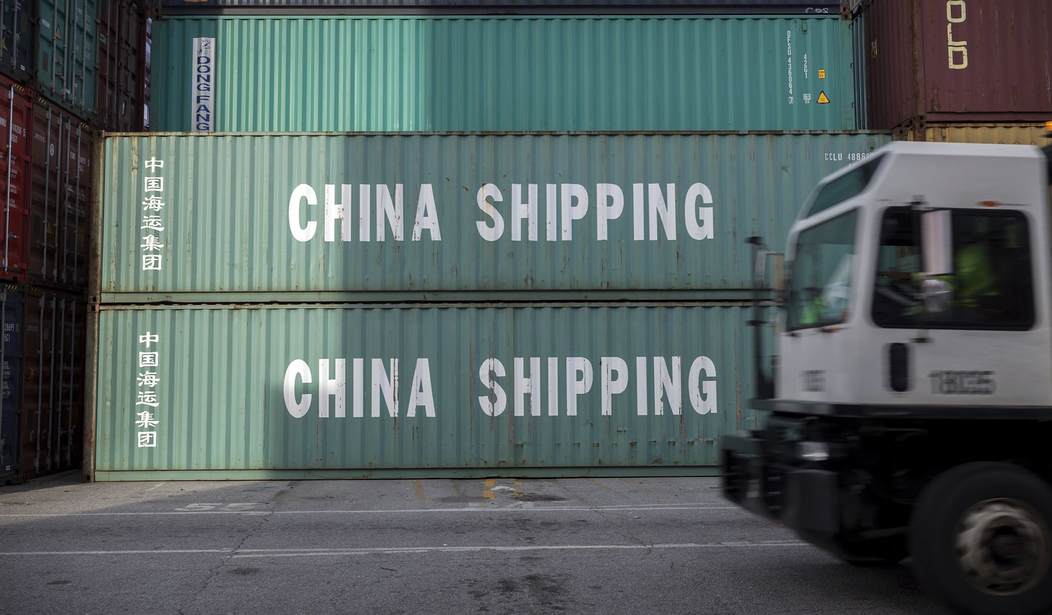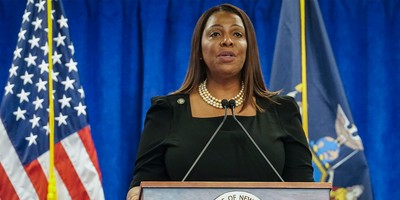The Trump Administration’s trade war has had an impact on American carmakers and other manufacturers that rely on imported components, farmers who rely on exports for their livelihood, and more, but the next round of tariffs symbolizes just how un-American this trade war has become. The next round of tariffs, on $300 billion in imports, would include tariffs on tea and fireworks.
They might as well be considering a tax on bald eagles.
At a hearing to consider these new Trump tariffs, one tea company provided one of the most obvious arguments: “Chinese teas have a significant historical and cultural value to America. The Boston Tea Party and similar events of the American Revolution were motivated by onerous and unreasonable impediments to the import of Chinese tea.”
Of course, the 1773 Boston Tea Party was a response to England’s 3 pence per pound tariff on tea imported from China. As President John F. Kennedy observed, “When the people of Boston in 1773 threw cargoes of tea into the harbor, the American Revolution was in effect under way, symbolized by this revolution against a tariff--a tariff which meant taxation without representation.”
In 1776, our Founding Fathers signed the Declaration of Independence, charging the British with a number of offenses, among them "cutting off our trade with all parts of the world." This is the same year economist Adam Smith wrote that trade is always advantageous, a concept that economists continue to endorse to this day.
Just a few years later the world witnessed the creation of the most successful free trade area in history, as the Constitution banned state-level politicians from erecting protectionist trade barriers against other states.
As Americans celebrate our country’s founding on July fourth, Trump administration bureaucrats will also be deciding on new 25 percent taxes on fireworks imported from China.
Recommended
This would affect both fireworks users and the charitable and civic groups that raise millions of dollars through fireworks sales. According to one fireworks display company, “small municipalities are already budget strapped and struggle year after year for funding to put on their community Fourth of July display. In most cases, a 25 percent hike in price will force their skies to go dark on the 4th of July.”
Another issue is presented by the imposition of tariffs without congressional approval. According to the Article 1, Section 8 of the U.S. Constitution, Congress--not the President--has the authority to impose taxes. Republicans who support the Trump administration’s unilateral imposition of tariffs are laying the groundwork for future administrations to bypass Congress and impose new carbon taxes or similar measures under the guise of a “national emergency.”
Although a new tax on tea or fireworks might seem like small potatoes, the total potential cost of taxes imposed on imports from China under Section 301 of U.S. trade law is at least $91.6 billion. In real dollars, this would represent the largest tax increase imposed on Americans since the conclusion of World War II.
Many individual companies and industries have asked the government to exclude products they import from any new tariffs. The U.S. government received 10,829 exclusion requests from the first round of Section 301 tariffs imposed on $34 billion in imports from China. As of June 21, just 22 percent of these requests had been approved.
Unfortunately, not every small business in the United States can spare the money to hire a pricey DC law firm to help them secure a tariff exclusion, and those that can must spend money they otherwise could have used to create new jobs.
Some misguided politicians have suggested companies that oppose new tariffs are simply greedy. That’s a shame. As we celebrate our country’s 243rd birthday, let’s also celebrate the American patriots who are following in the footsteps of our country’s founders by opposing costly new tariffs.
Bryan Riley is the director of the National Taxpayers Union’s Free Trade Initiative.

























Join the conversation as a VIP Member